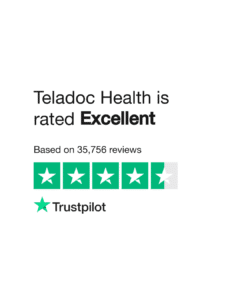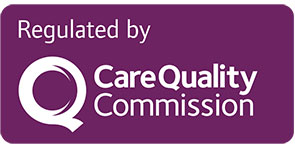Dr Laura Sheldrake has been a GP for seven years. She works for Teladoc Health 2 days a week and then for local NHS services the rest of the time. Laura talks to us about what she thinks of the virtual GP consultation service, what patients can expect, and tips for achieving a healthier lifestyle.
What happens in a virtual GP consultation?
“You connect with a GP using a phone or video. We start by hearing the story of what has been happening with details on your symptoms, medical history, and any concerns you have. The GP makes an assessment of the history and any other data available such as photos or recent test results. The clinician will then be able to provide advice on management which could include treatment with medication, lifestyle advice, or suggestions for an assessment with another clinician or further investigations. You will be able to access the full details of the consultation following the conversation.
Can you share some recent examples of how you have helped patients coming into the service?
I recently spoke to a patient who was struggling with foot pain and trying to train for a marathon. He needed quick advice on the problem and the best way to improve his symptoms. I was able to suggest some simple steps to improve the issues and offer some advice on when to seek further tests. I was able to refer him to Teladoc Health’s physiotherapy services, which he was delighted with. The service gave him the best chance of improving things enough to safely continue training for an important event to him.
I spoke with a young patient recently who was struggling with worries about their health. We were able to spend time exploring the symptoms and their concerns and as well as being able to offer reassurance, we were able to have a positive conversation about ‘health anxiety’. The patient thanked me for spending the time to talk through their worries and agreed that they were struggling with anxiety. I was able to refer them to Teladoc mental health services for further support and suggest some online resources in the meantime.
What advice would you give a patient who thinks of using the service but is still deciding?
I would recommend booking an appointment and giving it a go. We are a friendly team of GPs and will always do our best to listen and try and advise on the best next steps. If you do need a face-to-face assessment then we will be able to advise the best options to arrange this and also timings about how quickly you should ideally be seen. You will be able to access our support quickly, and we have a number of other services which may be able to offer additional help.
What do you most enjoy about working for Teladoc Health?
I love working for Teladoc because I have the time to properly explore a patient’s concerns and utilise my expertise. A fantastic team of specialist doctors well supports me and we work well together to share knowledge and improve the care we can offer. I find the role hugely satisfying as I feel I am making a difference.
Can you describe a typical working day at Teladoc Health?
Every day at Teladoc is different. I will usually undertake phone and video consultations in each session. Sessions are 4 hours long, and we are encouraged to stretch our legs or grab a drink to keep ourselves fresh. I work from my home office, a quiet space without interruptions.
What symptoms present the most?
There is a huge variety of who I consult with: all ages and with numerous different symptoms. As expected, we see a lot of common medical conditions such as infections, hay fever, and abdominal pain. For the more complex medical problems, I may reach out to the medical lead for the shift for their expertise. We also speak to a number of patients who need support with their mental health. Across the clinicians at Teladoc Health, numerous GPs have interests, knowledge, and skills in different areas.
What is the professional achievement you’re most proud of?
I am a programme director for GP training in Southampton. My role is to help support and train new GPs and this is a hugely rewarding part of my career – I feel privileged and proud to be able to do this.
What do you like doing to relax and take care of your wellbeing?
I love to spend time with my family (I have 3 young children) and get out and about. We love to explore the area we live in, visit new places, and try new activities. I exercise most days; in particular, I love spinning and yoga. My other passions are food and reading.
What are your go-to snacks during the day?
I like to snack on cheese and nuts as favourite easy snacks but do have a sweet tooth and have an occasional chocolate treat.
What are your top 5 tips for people looking to achieve healthier emotional wellness?
- Practice self-care. Making self-care a priority involves engaging in activities that bring you joy and help you to relax. This could include hobbies, spending time outside, reading, meditating, or giving yourself 20 minutes to soak in the bath.
- Cultivate emotional awareness. This means listening to your emotions and allowing yourself to ‘feel’ things. By acknowledging and accepting your emotions, you can identify your triggers, better manage stress, and start to develop healthier coping mechanisms.
- Build strong relationships. Surround yourself with people who support you and are positive. Invest time and effort into important people in your life. Mutual support, empathy, and belonging greatly contribute to your emotional wellbeing.
- Develop healthy coping mechanisms. This could include talking to a trusted friend or therapist, journaling, utilising online resources, practising mindfulness or deep breathing, or doing exercise of yoga.
- Seek professional help when needed. If you can recognise that you are struggling to fulfil the above steps or you are worried about your mental health it may be time to seek some professional support. Some things you may notice; you are struggling with prolonged feelings of sadness, you have increased anxiety or your feelings or mood are stopping you from doing what you need and want to do e.g. going to work and socialising. Professional support can be through your GP or by contacting Mental Health Services at Teladoc Health.”
Read our impact stats









